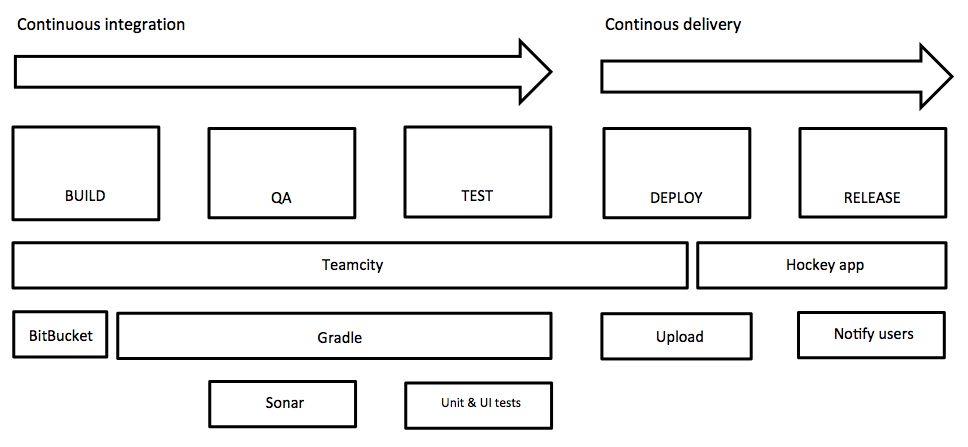An example of a continuous workflow for an Android app
A picture of the ad hoc distribution of an Android app could look as follows. For Continuous Integration, in the picture shown next, TeamCity is used to retrieve the app source code from a repository, created at Bitbucket:

In the preceding diagram, we used TeamCity to instruct Gradle to build and sign the app and create a Sonar report to measure the quality of the code. Also, we ran unit tests and ran UI tests (using Espresso). Once configured, TeamCity will take care of all these steps. If they all succeed, then another step will upload the signed app (APK file) to HockeyApp, which, in turn, notifies users about a new version being available. If you prefer you can also use Jenkins as a build server, or use Fabric Beta instead of HockeyApp. We will discuss the highlights of CI/CD only. There are some interesting books available for both build servers. Have a look at https://www.packtpub.com/ for more information.



































































